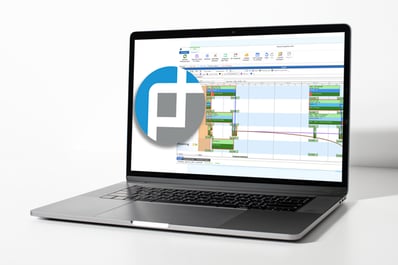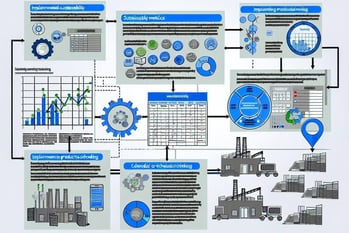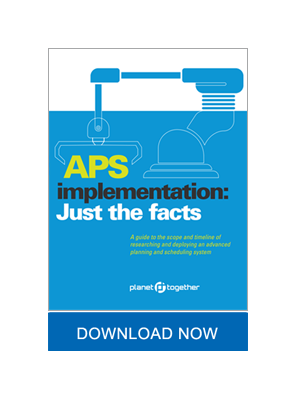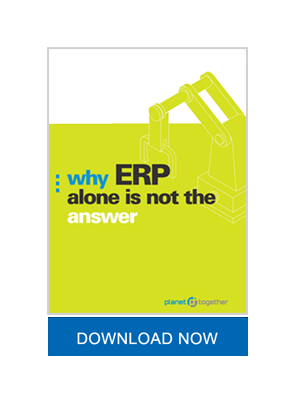Sustainable Manufacturing Metrics and KPIs for Enhanced Production Scheduling
Sustainability isn't just a buzzword; it's a critical aspect of operations that directly impacts the bottom line, brand reputation, and even market competitiveness. As a Production Scheduler, your role is pivotal in ensuring that production runs smoothly while aligning with sustainability goals.
In this blog, we'll look into the integration of sustainable manufacturing metrics and key performance indicators (KPIs) into your scheduling processes, with a focus on leveraging tools like PlanetTogether integrated with leading ERP, SCM, and MES systems such as SAP, Oracle, Microsoft, Kinaxis, and Aveva.

Sustainable Manufacturing Metrics and KPIs
Sustainable manufacturing involves minimizing environmental impact, optimizing resource utilization, promoting social responsibility, and ensuring economic viability throughout the production process. To effectively manage sustainability initiatives, it's crucial to establish relevant metrics and KPIs. These indicators help measure performance, identify areas for improvement, and track progress toward sustainability goals.

Key Sustainable Manufacturing Metrics and KPIs
Energy Consumption: Measure energy usage across production lines and aim for reductions through efficiency improvements or renewable energy adoption.
Water Usage: Monitor water consumption and implement strategies to minimize waste and pollution, such as recycling and reuse systems.
Waste Generation: Track waste generation at each stage of production and strive for waste reduction through lean manufacturing practices and recycling initiatives.
Carbon Footprint: Assess greenhouse gas emissions associated with manufacturing operations and implement measures to reduce emissions, such as optimizing transportation logistics or investing in cleaner technologies.
Resource Efficiency: Evaluate the efficient use of raw materials and resources, aiming to minimize waste and maximize utilization.
Supplier Sustainability: Assess supplier performance based on environmental, social, and ethical criteria, fostering collaboration with sustainable suppliers.
Product Lifecycle Analysis: Conduct lifecycle assessments to understand the environmental impact of products from raw material extraction to end-of-life disposal, guiding design decisions and process improvements.

Integration with PlanetTogether and ERP/SCM/MES Systems
Integrating sustainable manufacturing metrics and KPIs into production scheduling requires seamless communication between scheduling software like PlanetTogether and enterprise systems such as SAP, Oracle, Microsoft, Kinaxis, and Aveva. This integration enables real-time data exchange and decision-making based on up-to-date sustainability performance indicators.
Benefits of Integration
Data Accuracy: Schedulers can access accurate and real-time sustainability data directly within their scheduling software, ensuring informed decision-making.
Optimized Resource Allocation: By considering sustainability metrics during scheduling, resources can be allocated more efficiently, minimizing waste and environmental impact.
Improved Responsiveness: Integration allows for quick adjustments to production schedules in response to changes in sustainability performance or external factors like raw material availability or energy costs.
Enhanced Reporting: Comprehensive sustainability reports can be generated by combining data from scheduling and enterprise systems, facilitating compliance with regulations and stakeholder reporting requirements.
Continuous Improvement: Integration fosters a culture of continuous improvement by providing visibility into sustainability performance across the production process, enabling identification of areas for optimization.

Best Practices for Implementing Sustainable Metrics in Production Scheduling
Collaboration: Foster collaboration between production scheduling, sustainability, and other departments to ensure alignment of goals and strategies.
Training and Education: Provide training to schedulers and other stakeholders on the importance of sustainability metrics and how they influence scheduling decisions.
Data Integration: Ensure seamless integration between scheduling software and enterprise systems to enable efficient data exchange and decision-making.
Regular Monitoring and Analysis: Continuously monitor sustainability metrics and KPIs, analyzing trends and identifying opportunities for improvement.
Feedback Loop: Establish a feedback loop to incorporate lessons learned from scheduling decisions into future planning processes, driving ongoing optimization.
Integrating sustainable manufacturing metrics and KPIs into production scheduling processes is essential for driving efficiency, reducing environmental impact, and enhancing overall sustainability performance. By leveraging tools like PlanetTogether integrated with leading ERP, SCM, and MES systems, production schedulers can make informed decisions that align with sustainability goals while maintaining operational excellence.
Embracing sustainable manufacturing practices isn't just about meeting regulatory requirements; it's about future-proofing operations and creating value for stakeholders across the supply chain. As a Production Scheduler, you play a vital role in this journey toward a more sustainable future.
As you navigate the complexities of production scheduling, remember that sustainability isn't a destination but a continuous journey of improvement. By integrating sustainable metrics and KPIs into your scheduling processes, you're not only optimizing operations today but also contributing to a more resilient and responsible manufacturing industry for generations to come.
Are you ready to take your manufacturing operations to the next level? Contact us today to learn more about how PlanetTogether can help you achieve your goals and drive success in your industry.























LEAVE A COMMENT